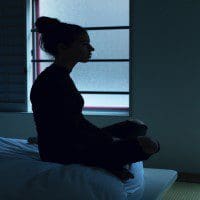
Improving Insomnia: Mental Health Interventions for Sleep Hygiene
$32.00
How much do you know about how your clients are sleeping? Even slight disruptions in sleep can have a large impact on our clients’ well-being. In this training, we will explore the nature of sleep disorders and the influence they have on mental and physical health. We will also review a variety of ways that therapists can help their clients – from children to adults – improve the quality of their sleep.
Upon completion of this training, participants will be able to:
- Discuss the differences between various sleep disorders
- Evaluate the impact of disrupted sleep on the mental and physical health of a client
- Review a wide variety of interventions for addressing sleep disorders
- Determine which strategies are most appropriate when treating sleep disorders
Social workers completing this course receive 2 Clinical asynchronous continuing education credits.
For other board approvals, this course qualifies for 2 hours of Clinical, Evidence-Based Practices, and General Skill Building continuing education training.
Course Instructor: Dreya Blume, MA, LCSW
Recording Date: 5/23/2024
NBCC ACEP # 7091, CE Training Workshops has been approved by NBCC as an Approved Continuing Education Provider, ACEP #7091. Programs that do not qualify are clearly identified. CE Training Workshops is solely responsible for all aspects of the programs. CE Training Workshops designates this continuing education activity for 3 continuing education hours.
CE Training Workshops, LLC, #1770, is approved as an ACE provider to offer social work continuing education by the Association of Social Work Boards (ASWB) Approved Continuing Education (ACE) program. Regulatory boards are the final authority on courses accepted for continuing education credit. ACE provider approval period: 08/02/2025 to 08/02/2028. Social workers completing this course receive 3 Clinical continuing education credits.
Dreya Blume, MA, LCSW is a licensed clinical social worker, with her MSW from Radford University and an MA in anthropology from the University of Hawaii. Dreya has twenty years of experience working in mental health, from case management to intensive in-home services to leading groups for addicts in recovery.
Improving Insomnia: Mental Health Interventions for Sleep Hygiene (2 HR) Syllabus
I. Understanding Sleep Disorders
- Define insomnia and differentiate it from other sleep disorders
- Review DSM-5 sleep-wake disorder categories including insomnia disorder, hypersomnolence, circadian rhythm disorders, and parasomnias
- Explore the prevalence and impact of sleep difficulties on mental and physical health
II. Causes and Symptoms of Insomnia
- Identify behavioral, environmental, and physiological causes of insomnia including stress, trauma, medical conditions, and substance use
- Understand chronic insomnia criteria including duration and frequency
- Examine symptoms such as fatigue, irritability, cognitive difficulties, and mood disturbances
III. Assessment and Diagnosis
- Use client interviews, physical exams, sleep diaries, and sleep studies to assess sleep issues
- Ask key questions related to sleep patterns, habits, lifestyle, and coexisting conditions
- Identify genetic, neurological, and environmental contributors
IV. Pharmacological Interventions
- Review prescription options for onset insomnia, middle insomnia, and early waking
- Understand benefits and limitations of medications such as Ambien, Lunesta, Restoril, and Belsomra
- Emphasize the importance of integrated and short-term use within a broader treatment plan
V. Cognitive Behavioral Therapy for Insomnia (CBT-I)
- Implement cognitive strategies to identify and shift unhelpful thoughts about sleep
- Apply behavioral techniques including stimulus control, sleep restriction, and paradoxical intention
- Integrate relaxation methods and psychoeducation
- Explore CBT-based apps like Stellar Sleep and Sleep Reset
VI. Holistic and Lifestyle Approaches
- Encourage exercise, yoga, and mindfulness to regulate the nervous system
- Recommend sleep hygiene strategies such as consistent schedules, bedroom environment optimization, and screen-time reduction
- Address dietary habits including caffeine, alcohol, and heavy evening meals
VII. Supplements and Natural Supports
- Review use of melatonin, magnesium, valerian root, and vitamin D3
- Discuss evidence for acupuncture as a supportive treatment
VIII. Mind-Body Techniques
- Teach meditation, body scans, and progressive muscle relaxation for physiological calm
- Utilize breathing techniques like 4-7-8 to regulate arousal before sleep
IX. Emotional Freedom Technique (EFT) for Sleep
- Guide clients through tapping protocols and the use of setup phrases
- Introduce the Choices Method to combine distress acknowledgment with positive reframing
- Recommend EFT video and book resources for client self-practice
X. Additional Tools and Resources
- Discuss the use of CBD oil for sleep support
- Suggest worry journals and transitional rituals to reduce nighttime arousal
- Recommend books and videos to support long-term behavior change and sleep wellness


